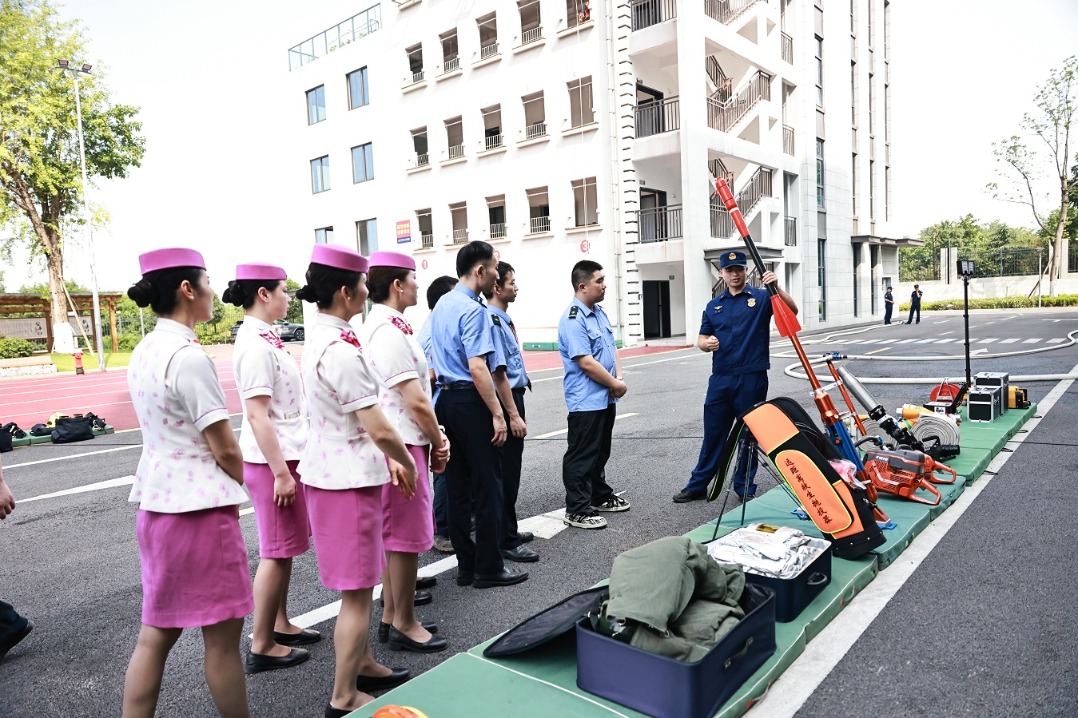Conflict escalates between humans and elephants

Many asked, "Can we go to work on our rubber farms?"
Diao Yongqing was one of those watching real-time footage from the drone. "Rubber is the only income source for my family of four. We can make 30,000 to 40,000 yuan a year from it," the 39-year-old said.
He added that he usually goes to his farm after 2 am. "The first thing I do after I am woken by the alarm clock is to make phone calls to ask where the elephant is. We are really afraid of it."
The monitoring continued until 4 am, when a brief but strong downpour occurred and the elephant entered a jungle-shrouded mountainous area without re-emerging.
Wu rushed to connect batteries for his drones to the charger, but fell asleep on a couch in a villager's home. "I normally use more than 20 batteries a night," he said.
He restarted his monitoring work after only two hours' sleep, but breathed a sigh of relief after finding that the elephant had not returned to the area from the jungle. "My experience told me it would cross the mountains, and that could take two days," he said.
Wu decided to return home to rest with his wife and 2-year-old daughter in Jinghong, which is about three hours away by car.
"The longest time I have been away from home for monitoring work is six months and 10 days," he said.
On his way home, however, a ranger on the other side of the mountains called him and said he had found fresh elephant footprints, suggesting that the animal may have crossed back already and would need monitoring again.
Li Yingqing and Xinhua News Agency contributed to this story.
- Young filmmakers' project paints multidimensional portrait of China
- Rare 1938 Guangzhou bombing photos to debut in August
- Power station solves renewable energy intermittency
- China appoints senior official for Hong Kong, Macao affairs
- World-first study analyzes minerals on far side of moon
- China firmly supports establishing Southeast Asia nuclear weapon-free zone: defense ministry





































